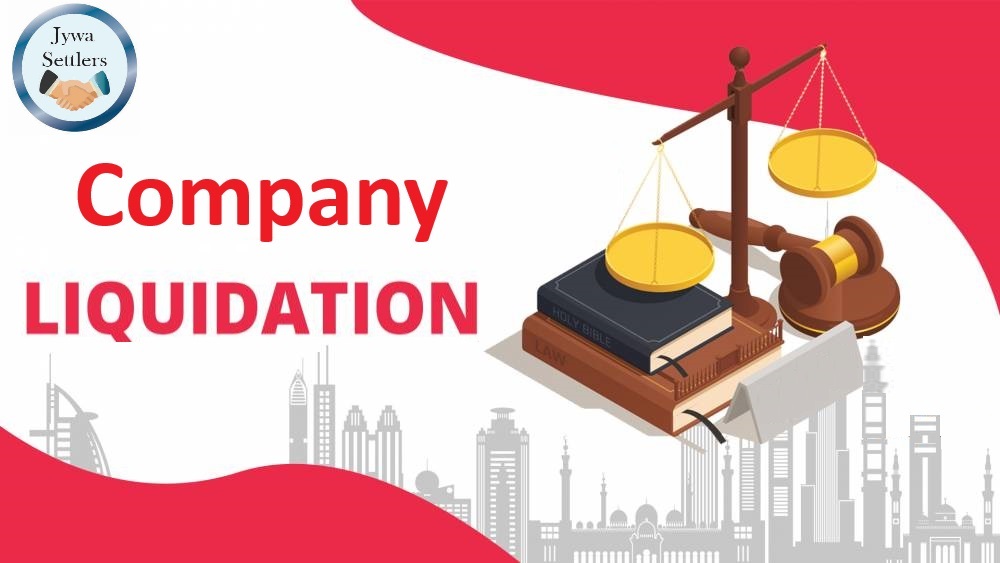In the dynamic business landscape of the United Arab Emirates (UAE), companies sometimes face the need for dissolution due to various reasons such as financial insolvency, strategic restructuring, or regulatory compliance. In such instances, seeking professional assistance from reputable financial consultancy firms becomes imperative. JYWA SETTLERS stands out as a leading firm offering comprehensive company liquidation services in the UAE. In this article, we delve into the intricacies of company liquidation in the UAE context, exploring the process, regulations, and the role of JYWA SETTLERS in facilitating seamless dissolution procedures.
Understanding Company Liquidation in the UAE:
Company liquidation, also known as winding up or dissolution, refers to the process of closing down a company’s operations, settling its liabilities, and distributing its assets to stakeholders in accordance with the applicable laws and regulations. In the UAE, company liquidation can be voluntary or compulsory, depending on the circumstances surrounding the closure.
Voluntary Liquidation:
Voluntary liquidation occurs when the shareholders of a company decide to wind up its affairs. This may be due to various reasons such as the completion of the company’s objectives, financial difficulties, or a strategic decision to cease operations. In voluntary liquidation, the shareholders appoint a liquidator who oversees the process and ensures compliance with legal requirements.
Compulsory Liquidation:
Compulsory liquidation, on the other hand, is initiated by a court order typically in cases of insolvency or failure to meet financial obligations. The court appoints a liquidator to oversee the process and protect the interests of creditors.
Process of Company Liquidation in the UAE:
The process of company liquidation in the UAE involves several steps, which may vary depending on the type of company and the applicable regulations. Generally, the key steps include:
- Decision-Making: The shareholders or the company’s management decide to liquidate the company and appoint a liquidator.
- Preparation of Resolutions: Resolutions for liquidation are drafted and approved by the shareholders in a general meeting.
- Appointment of Liquidator: A liquidator is appointed to manage the liquidation process, realize assets, settle liabilities, and distribute proceeds.
- Notification and Advertisement: Notice of liquidation is published in local newspapers to inform creditors and other stakeholders.
- Asset Realization: The liquidator identifies, values, and sells the company’s assets to generate funds for settling liabilities.
- Settlement of Liabilities: Creditors are notified to submit their claims, and liabilities are settled in accordance with the priority set by law.
- Distribution of Assets: After settling liabilities, the remaining assets are distributed among shareholders in accordance with their entitlements.
- Closure and Deregistration: Once all affairs are settled, the company is deregistered with the relevant authorities, and the liquidation process is formally concluded.
Regulatory Framework for Company Liquidation in the UAE:
Company liquidation in the UAE is governed by various laws and regulations, including:
- Commercial Companies Law: The Federal Law No. 2 of 2015 concerning commercial companies sets out the legal framework for company formation, operation, and liquidation in the UAE.
- Bankruptcy Law: The Federal Law No. 9 of 2016 concerning bankruptcy provides provisions for insolvent companies to undergo restructuring or liquidation procedures.
- Free Zone Regulations: Free zones in the UAE have their own regulatory frameworks governing company formation and liquidation within their jurisdictions.
- DIFC Insolvency Law: The Dubai International Financial Centre (DIFC) has its own insolvency law, which applies to companies registered within the DIFC.
Role of JYWA SETTLERS in Company Liquidation:
As a leading financial consultancy firm in the UAE, JYWA SETTLERS plays a pivotal role in facilitating company liquidation processes with professionalism, expertise, and efficiency. Here’s how:
- Expert Guidance: JYWA SETTLERS provides expert guidance and assistance to companies navigating the complexities of liquidation, ensuring compliance with relevant laws and regulations.
- Tailored Solutions: The firm offers tailored solutions based on the specific needs and circumstances of each client, whether it involves voluntary or compulsory liquidation.
- Liaison with Authorities: JYWA SETTLERS liaises with relevant authorities, including government agencies and regulatory bodies, to expedite the liquidation process and ensure smooth coordination.
- Asset Management: The firm assists in the identification, valuation, and disposal of assets in a manner that maximizes value for stakeholders.
- Creditor Negotiations: JYWA SETTLERS negotiates with creditors on behalf of the company to reach favorable settlements and minimize disputes during the liquidation process.
- Legal Compliance: With a thorough understanding of UAE laws and regulations, JYWA SETTLERS ensures strict adherence to legal requirements throughout the liquidation process.
Conclusion:
In conclusion, company liquidation in the UAE is a structured process governed by laws and regulations aimed at safeguarding the interests of stakeholders. JYWA SETTLERS emerges as a trusted partner for companies seeking professional assistance in navigating the complexities of liquidation. With its expertise, experience, and commitment to excellence, the firm facilitates seamless dissolution procedures, ensuring compliance, transparency, and optimal outcomes for its clients.
Through this comprehensive guide, readers gain insights into the intricacies of company liquidation in the UAE and the pivotal role played by JYWA SETTLERS in facilitating this critical aspect of business operations.

